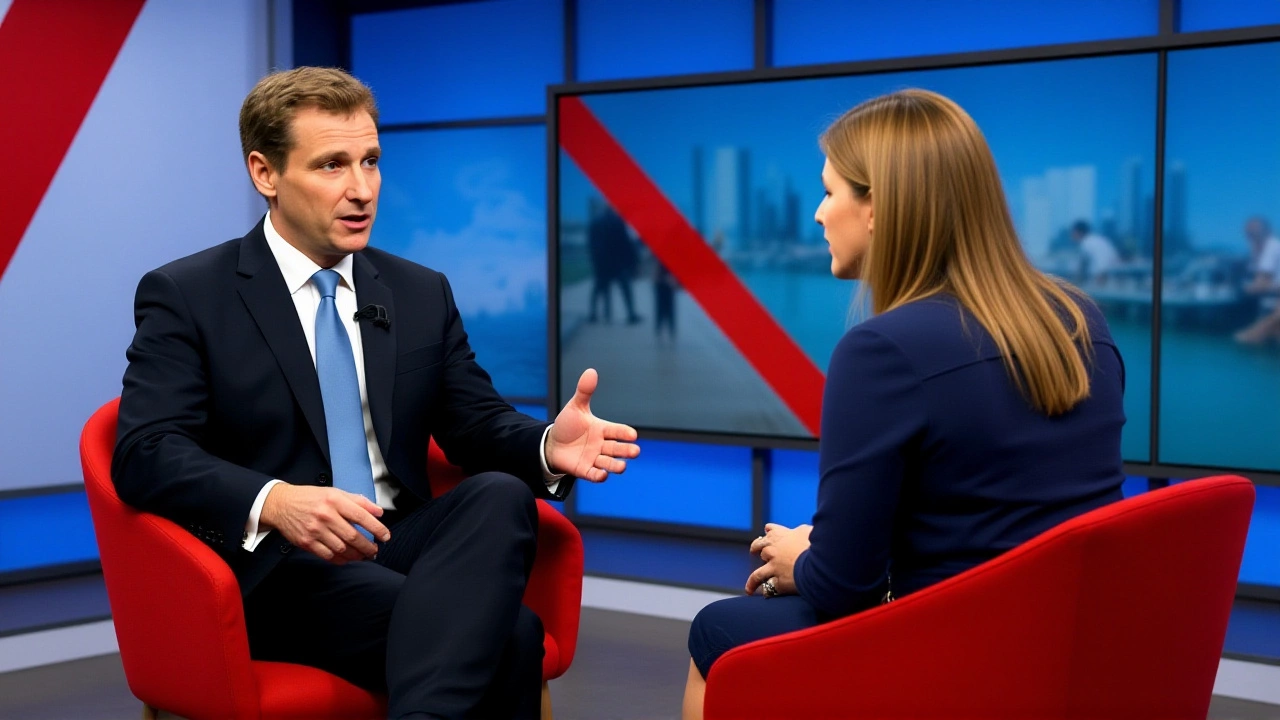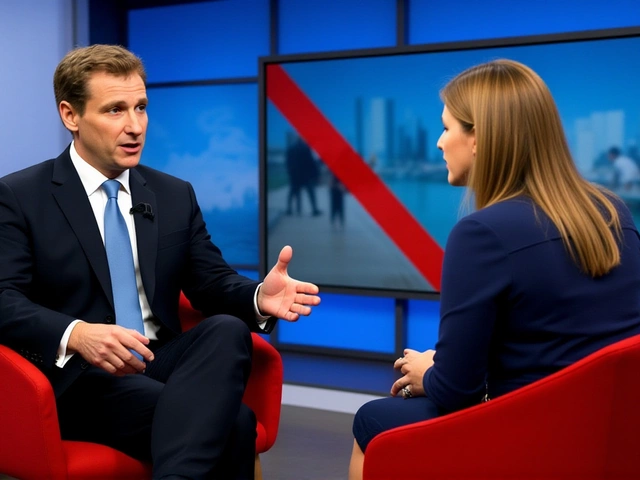16
UK Unveils Radical Asylum Overhaul: Temporary Status for Refugees Amid Surge in Claims

On Monday, October 7, 2025, Yvette Cooper Mahmood, Home Secretary dropped a policy bombshell: the United Kingdom’s asylum system, long seen as a beacon of humanitarian refuge, is being fundamentally rewritten. In a stark video address on Sunday, she declared the current framework ‘out of control’ and ‘dividing the country.’ The message was clear: sanctuary isn’t being withdrawn, but it’s no longer a fast track to permanence. The change, effective immediately, marks the most dramatic shift in British asylum policy since the post-war era.
From Permanent to Temporary: The New Rules
Under the old system, refugees granted protection after five years of continuous residence automatically received indefinite leave to remain — a tradition rooted in the 1951 Refugee Convention. That’s gone. Now, anyone granted asylum will receive temporary status for just 2.5 years, renewable every 30 months. After that, they must reapply, and only those who can prove ongoing risk in their home country will be renewed. Crucially, those arriving illegally — whether via small boats across the English Channel or by overstaying visas — face a 20-year waiting period before even being eligible to apply for permanent settlement. Legal arrivals, by contrast, get a 10-year pathway. It’s not a ban, but it’s a barrier. And it’s designed to be a deterrent.
The Home Office, headquartered at 2 Marsham Street in London, estimates that 400,000 asylum claims have been made in the UK over the past four years — a number that’s climbed while other European nations saw declines. The Channel route alone saw 28,526 arrivals in 2024. Mahmood pointed to these figures as proof the system was being exploited. ‘We’ve returned nearly 50,000 people already,’ she said. ‘We’ve stopped over 20,000 crossings. But we’re not done.’
A European Shift, With the UK Leading
The timing wasn’t accidental. Just five days earlier, on October 2, 2025, leaders from 17 European nations — including Germany, Sweden, Denmark, and Poland — met in Copenhagen at the European Political Community SummitCopenhagen. They issued a joint statement pledging to take a ‘whole-of-route approach’ to migration, with stronger border controls, faster returns, and tougher asylum frameworks. The UK’s reforms aren’t just domestic policy — they’re a coordinated signal to the continent. Denmark’s 2016 ‘jewelry law’ and Austria’s 2015 restrictions were precursors. Now, London is matching their intensity.
What’s notable is the explicit departure from Article 32 of the 1951 Refugee Convention, which allowed for permanent settlement after three years of temporary protection. The UK is no longer interpreting that provision as a right. ‘We’re changing generations-old assumptions,’ Mahmood told the BBC. ‘Sanctuary doesn’t mean automatic citizenship.’
Who’s Affected — And Who’s Silent
The reforms will impact tens of thousands. A Syrian family arriving by boat in 2025 won’t get a UK passport in 2030. They’ll get a renewable permit. A Ukrainian fleeing war through a legal visa route? They’ll have to wait a decade before applying for permanence. The government argues this levels the playing field between legal and illegal routes. Critics say it punishes the vulnerable. The Refugee Council, a charity founded in 1951 and based at 25 Wilton Road in London, has yet to respond publicly as of October 6, 2025. That silence speaks volumes — either they’re drafting a sharp rebuttal, or they’re assessing legal consequences.
Meanwhile, legal aid groups are already bracing for a flood of appeals. The 20-year wait for illegal arrivals is unprecedented in Western Europe. Even France and Italy — often criticized for harsh policies — don’t impose such long bars. The Home Office insists it’s not about cruelty, but deterrence. ‘We’re not closing our doors,’ Mahmood said. ‘We’re just making sure they’re not wide open.’

What’s Next: Implementation and Legal Battles
Implementation begins in Q4 2025, with full rollout expected by Q2 2026. That means thousands of pending applications will be reassessed under the new rules. The Home Office is hiring 1,200 new caseworkers and upgrading its digital system to track temporary status renewals. But the legal challenges are already brewing. Human rights lawyers are preparing test cases, arguing the 20-year wait violates the European Convention on Human Rights — particularly Article 8 (right to family life) and Article 3 (prohibition of inhuman treatment).
There’s also a political gamble here. With the next general election looming in 2029, the government is betting that voters prioritize control over compassion. Polls show a narrow majority support reducing asylum numbers. But what happens when a child born in the UK under temporary status turns 18 — and still can’t apply for citizenship? What if a refugee’s home country, now deemed ‘safe’ by the Home Office, descends into renewed violence? The policy doesn’t account for that.
Why This Matters Beyond the UK
This isn’t just a British story. It’s a warning to other nations. If the UK — a signatory to the Refugee Convention, a former global leader in asylum protections — can rewrite its rules so drastically, what’s stopping others? The ripple effect could be profound. Countries like Ireland and the Netherlands may feel pressure to follow suit. Meanwhile, NGOs fear a rise in dangerous, unregulated migration routes as legal channels shrink.
And here’s the quiet irony: while the government touts ‘order,’ the new system will likely create more bureaucracy, more uncertainty, and more people stuck in limbo. The goal is to reduce numbers. But the cost? A generation of people living in perpetual probation.
Frequently Asked Questions
How does the new 20-year wait affect families who arrived illegally?
Families arriving via small boats or overstaying visas must wait two decades before applying for permanent settlement — even if they’ve lived, worked, and raised children in the UK. Their children born here will still be considered undocumented until the 20-year mark, limiting access to university fees, full healthcare, and certain jobs. This creates a class of long-term residents with no path to full citizenship.
What happens if a refugee’s home country becomes unsafe again after their status is renewed?
The Home Office will reassess each renewal based on current country conditions. But if a country was deemed ‘safe’ during the initial review — even if it later deteriorates — applicants must provide new, compelling evidence of renewed persecution. This places a heavy burden on individuals who may lack documentation, legal support, or access to international reporting.
Does this violate international law?
Legal experts argue the 20-year bar and elimination of automatic permanent status breach Article 32 of the 1951 Refugee Convention, which permits permanent residence after three years of temporary protection. The UK government claims it’s still compliant because it doesn’t refuse protection — only delays permanence. Courts may ultimately decide whether delay equals denial.
How will this impact the number of Channel crossings?
The government hopes deterrence will reduce crossings, but past experience suggests otherwise. When Australia introduced offshore processing, boat arrivals dropped — but smuggling networks adapted, and deaths at sea rose. Experts warn the same could happen here: more people turning to dangerous routes, or paying higher fees to smugglers who promise ‘guaranteed’ entry.
Why are legal routes getting a 10-year pathway instead of 5?
The government says it wants to discourage ‘asylum shopping’ — where people claim to be refugees to bypass visa rules. By making both legal and illegal routes take longer to reach permanence, it aims to remove the incentive to arrive illegally. But critics say this punishes those who followed the rules, undermining trust in the system.
Who decides which countries are ‘safe’?
The Home Office’s Country of Origin Information Unit, staffed by analysts and intelligence officers, reviews safety based on diplomatic reports, UNHCR data, and conflict monitoring. But the process lacks transparency. Countries like Algeria, Tunisia, and Georgia — where human rights concerns persist — have already been flagged as ‘safe’ in internal briefings, raising fears of politically motivated designations.




